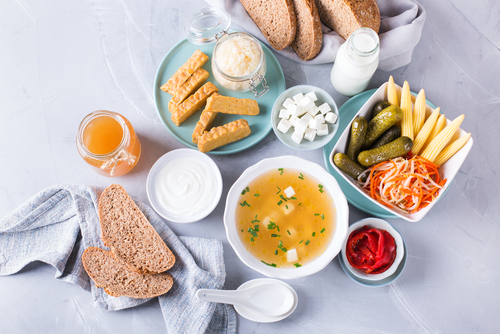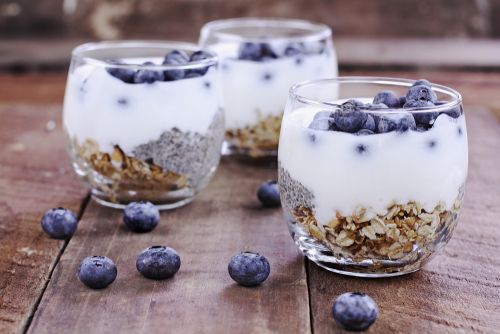Probiotic foods have gained significant attention in recent years for their potential health benefits. These foods contain live bacteria and yeasts that can improve the balance of beneficial microbes in our gut, leading to enhanced digestion, stronger immunity, and improved overall well-being. In this article, we’ll explore the wonders of, and discover some of the best probiotic foods to incorporate into your daily diet.
Understanding Probiotics

Probiotics are live microorganisms that provide health benefits when consumed in adequate amounts. These friendly bacteria can be found in various fermented foods and are also available as dietary supplements. They work by colonizing our gut and promoting the growth of beneficial bacteria, which aids digestion and nutrient absorption. Probiotics also play a crucial role in supporting our immune system and maintaining a healthy balance in the gut microbiome. However, one common question that arises is whether probiotics can cause weight gain. The relationship between probiotics and weight is complex and not entirely understood. While some studies suggest that certain probiotic strains may help with weight management by promoting a healthy gut environment, others have raised concerns about the potential for probiotics to cause weight gain.
Benefits of Probiotic Foods
- Improved Digestion: Probiotic foods can alleviate digestive issues such as bloating, gas, and constipation. They help break down food, enhance nutrient absorption, and support the production of digestive enzymes.
- Enhanced Immunity: The gut is home to a significant portion of our immune system. Probiotics strengthen the gut barrier, preventing harmful bacteria from entering our bloodstream and improving our ability to fight off infections.
- Mood and Mental Health: Emerging research suggests a strong connection between gut health and mental well-being. Probiotic foods can positively impact mood and may reduce symptoms of anxiety and depression.
- Reduced Inflammation: Certain strains of probiotics have been shown to reduce inflammation in the body, which can help manage chronic conditions like inflammatory bowel disease, eczema, and rheumatoid arthritis.
Probiotic Foods to Add to Your Diet

- Yoghurt: One of the most popular probiotic-rich foods, yoghurt is packed with beneficial bacteria, including strains like Lactobacillus and Bifidobacterium. Opt for plain, unsweetened yoghurt to avoid added sugars.
- Kefir: A fermented milk drink, kefir contains a diverse range of probiotics and is often well-tolerated by individuals with lactose intolerance.
- Sauerkraut: Made from fermented cabbage, sauerkraut is rich in Lactobacilli. Add it as a tangy topping to sandwiches or enjoy it as a side dish.
- Kimchi: A traditional Korean side dish, kimchi is fermented cabbage with various spices. It offers a robust array of probiotics and adds a flavorful kick to meals.
- Kombucha: This fermented tea contains live cultures and can be a refreshing probiotic-rich beverage. Look for options with low sugar content.
- Miso: A staple in Japanese cuisine, miso is a fermented soybean paste that adds depth of flavor to soups, dressings, and marinades while providing beneficial bacteria.
Tips for Incorporating Probiotic Foods into Your Diet
While understanding the benefits of probiotic foods is important, knowing how to incorporate them into your diet is equally crucial. Here are some tips to help you make the most of these gut-friendly foods:
- Start small: If you’re new to probiotics, introduce them gradually into your diet to allow your body to adjust.
- Be mindful of storage: Probiotics are live cultures, so ensure you store fermented foods properly to maintain their beneficial bacteria.
- Experiment with recipes: Get creative in the kitchen by adding probiotic-rich foods to smoothies, salads, stir-fries, and even baked goods.
- Explore diverse options: Don’t limit yourself to one or two probiotic foods. Try different varieties to diversify the strains of bacteria you consume.
- Consider supplements: If it’s challenging to incorporate probiotic foods into your routine, consult a healthcare professional about probiotic supplements that may suit your needs.
By following these tips, you can maximize the benefits of probiotic foods and foster a healthier gut environment.
Conclusion
With a little knowledge and some culinary creativity, you can easily incorporate probiotic foods into your daily diet. Whether you choose yogurt, kefir, sauerkraut, or other delicious options, these foods can have a profound impact on your gut health and overall well-being. So, embark on a journey of good gut health and savor the delights of probiotic-rich foods!





